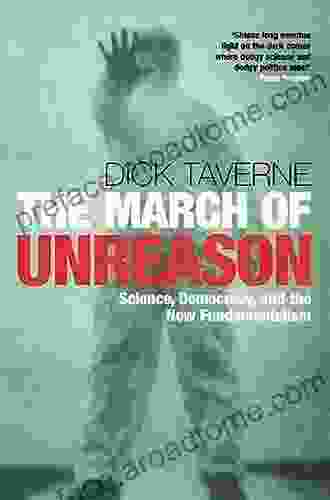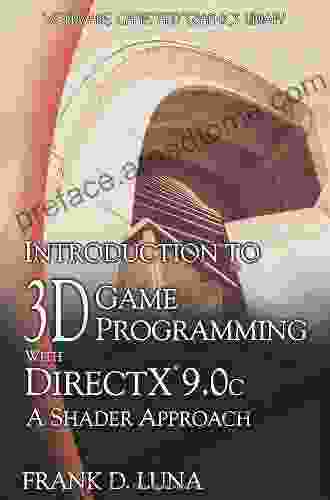Science, Democracy, and the New Fundamentalism: A Critical Examination

In the wake of the rise of new forms of fundamentalism, the relationship between science and democracy has come under increasing scrutiny. The traditional model of science as a neutral and objective source of knowledge is no longer tenable, and science is increasingly being used to justify political and ideological agendas.
This book examines the complex relationship between science and democracy in the context of the rise of new forms of fundamentalism. It argues that the traditional model of science as a neutral and objective source of knowledge is no longer tenable, and that science is increasingly being used to justify political and ideological agendas. The book also argues that the rise of new forms of fundamentalism is a threat to both science and democracy, and that it is important to develop new ways of thinking about the relationship between these two important concepts.
4.1 out of 5
| Language | : | English |
| File size | : | 956 KB |
| Text-to-Speech | : | Enabled |
| Screen Reader | : | Supported |
| Enhanced typesetting | : | Enabled |
| Word Wise | : | Enabled |
| Print length | : | 318 pages |
| Lending | : | Enabled |
The Rise of New Fundamentalism
Fundamentalism is a term that is often used to describe a religious movement that is characterized by a strict adherence to traditional beliefs and practices. In recent years, there has been a resurgence of fundamentalism in many parts of the world, and this has led to a number of challenges for science and democracy.
One of the most significant challenges is the way that fundamentalists often reject the authority of science. For example, many fundamentalists believe that the Earth was created in six days, and they reject the scientific evidence that shows that the Earth is billions of years old. This rejection of science can have a number of negative consequences, including the spread of misinformation and the undermining of public health.
Another challenge is the way that fundamentalists often seek to impose their beliefs on others. For example, some fundamentalists have tried to ban the teaching of evolution in schools, and they have also tried to pass laws that would discriminate against people who do not share their religious beliefs. These attempts to impose religious beliefs on others can be a serious threat to democracy.
The Threat to Science and Democracy
The rise of new fundamentalism is a threat to both science and democracy. The rejection of science by fundamentalists can lead to the spread of misinformation and the undermining of public health. The attempts by fundamentalists to impose their beliefs on others can be a serious threat to democracy.
It is important to note that not all fundamentalists are anti-science or anti-democratic. However, the rise of new forms of fundamentalism is a serious threat to both science and democracy, and it is important to be aware of the challenges that this poses.
New Ways of Thinking
In the face of the challenges posed by the rise of new fundamentalism, it is important to develop new ways of thinking about the relationship between science and democracy.
One way to do this is to recognize that science is not a neutral and objective source of knowledge. Science is a human endeavor, and it is therefore subject to the same biases and limitations as any other human activity.
Another way to think about the relationship between science and democracy is to recognize that science is a public good. Science benefits all of society, and it is therefore important to protect science from the threats posed by fundamentalism.
Finally, it is important to remember that science and democracy are not mutually exclusive. Science can be used to inform democratic decision-making, and democracy can provide the necessary safeguards to protect science from the threats posed by fundamentalism.
The rise of new fundamentalism is a serious threat to both science and democracy. It is important to be aware of the challenges that this poses, and to develop new ways of thinking about the relationship between these two important concepts. By working together, we can protect science and democracy from the threats posed by fundamentalism.
4.1 out of 5
| Language | : | English |
| File size | : | 956 KB |
| Text-to-Speech | : | Enabled |
| Screen Reader | : | Supported |
| Enhanced typesetting | : | Enabled |
| Word Wise | : | Enabled |
| Print length | : | 318 pages |
| Lending | : | Enabled |
Do you want to contribute by writing guest posts on this blog?
Please contact us and send us a resume of previous articles that you have written.
 Book
Book Novel
Novel Page
Page Chapter
Chapter Text
Text Story
Story Genre
Genre Reader
Reader Library
Library Paperback
Paperback E-book
E-book Magazine
Magazine Newspaper
Newspaper Paragraph
Paragraph Sentence
Sentence Bookmark
Bookmark Shelf
Shelf Glossary
Glossary Bibliography
Bibliography Foreword
Foreword Preface
Preface Synopsis
Synopsis Annotation
Annotation Footnote
Footnote Manuscript
Manuscript Scroll
Scroll Codex
Codex Tome
Tome Bestseller
Bestseller Classics
Classics Library card
Library card Narrative
Narrative Biography
Biography Autobiography
Autobiography Memoir
Memoir Reference
Reference Encyclopedia
Encyclopedia Sara James Mnookin
Sara James Mnookin Dr David M Horan
Dr David M Horan Dirk Proske
Dirk Proske Francesco Abbruzzese
Francesco Abbruzzese Donniel S Schulman
Donniel S Schulman Dominic Roskrow
Dominic Roskrow Jeffrey L Rinek
Jeffrey L Rinek Desmond King
Desmond King Diane Musho Hamilton
Diane Musho Hamilton Don Boys
Don Boys Lars Landberg
Lars Landberg Wietse Venema
Wietse Venema Luc C Lebbe
Luc C Lebbe Elizabeth Warner
Elizabeth Warner Dr Denis Van Loan
Dr Denis Van Loan Lynn Andrews
Lynn Andrews Djuana Berlin
Djuana Berlin Donatella Rossi
Donatella Rossi Melita Belgrave
Melita Belgrave Donna Kacmar
Donna Kacmar
Light bulbAdvertise smarter! Our strategic ad space ensures maximum exposure. Reserve your spot today!
 Eddie BellFollow ·10.8k
Eddie BellFollow ·10.8k Hassan CoxFollow ·10k
Hassan CoxFollow ·10k Allen ParkerFollow ·2.2k
Allen ParkerFollow ·2.2k Jason HayesFollow ·8.1k
Jason HayesFollow ·8.1k Danny SimmonsFollow ·3.9k
Danny SimmonsFollow ·3.9k Cormac McCarthyFollow ·19.1k
Cormac McCarthyFollow ·19.1k Garrett PowellFollow ·12.5k
Garrett PowellFollow ·12.5k Zadie SmithFollow ·8k
Zadie SmithFollow ·8k

 Brandon Cox
Brandon CoxUnveiling the Secrets of Core Concepts: The Ultimate...
Are you ready to unlock the doors...

 Colt Simmons
Colt SimmonsUnlock Your True Potential: Uncover the Real Reasons For...
Embark on a...

 Ivan Turner
Ivan TurnerLove You Mom But You And Dad Are Getting a Divorce
A Heartfelt and...

 Ervin Bell
Ervin BellIntroducing Mouse Paul Moorcraft: A Captivating Tale of...
Embark on an Unforgettable Journey...

 Mike Hayes
Mike HayesBattling Obesity In Teens And Shaping The Future
The Growing...

 Yasushi Inoue
Yasushi InoueEmbark on a Culinary and Cultural Voyage: Delve into the...
A Tapestry of...
4.1 out of 5
| Language | : | English |
| File size | : | 956 KB |
| Text-to-Speech | : | Enabled |
| Screen Reader | : | Supported |
| Enhanced typesetting | : | Enabled |
| Word Wise | : | Enabled |
| Print length | : | 318 pages |
| Lending | : | Enabled |












